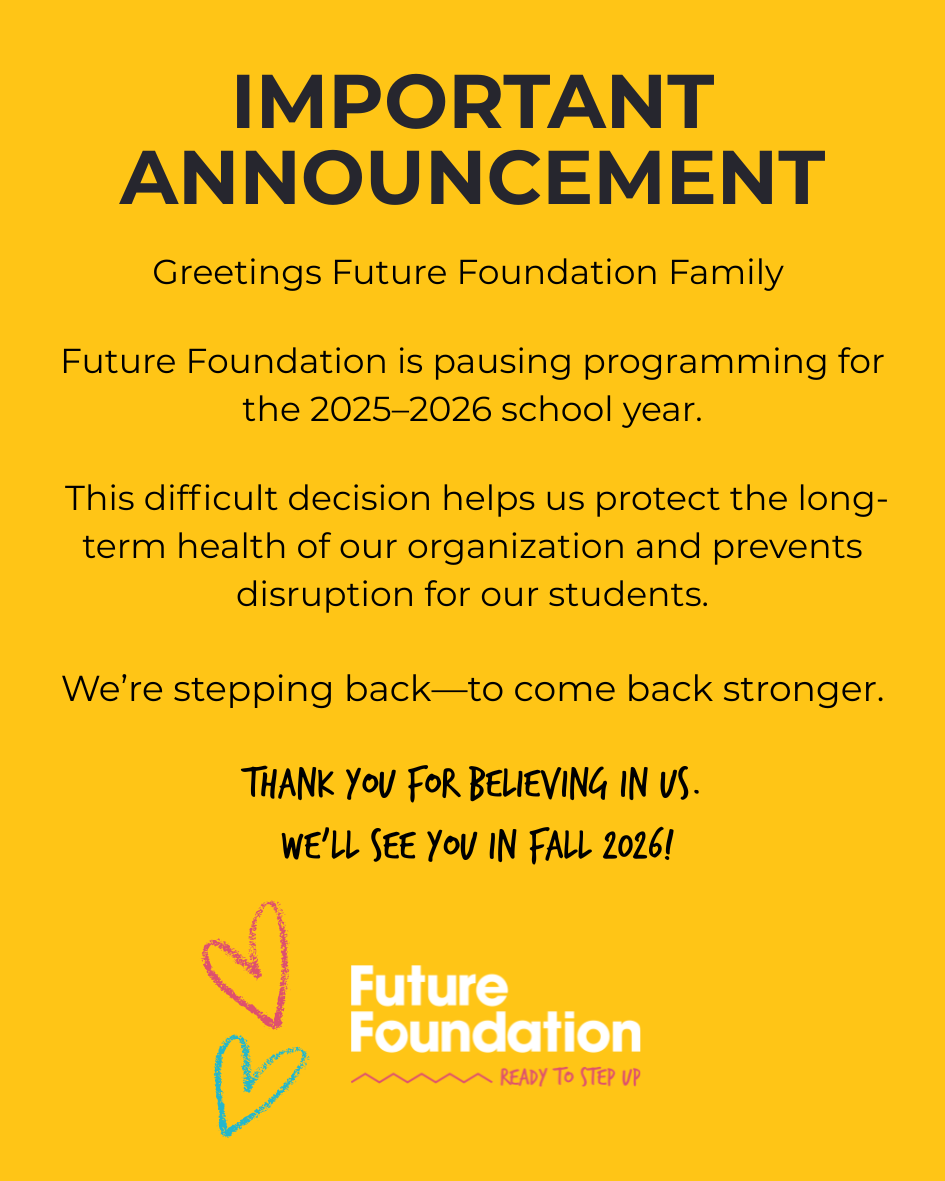May is Mental Health Awareness Month—a time to reflect, learn, and take action to support emotional well-being in our families, schools, and communities.
At Future Foundation, we believe that mental health is just as important as physical health. But we also know that in many underserved communities, mental health is still a taboo topic. Seeking help is sometimes viewed as weakness, and emotional challenges are often brushed aside or kept behind closed doors. That has to change.
We cannot build strong futures without caring for the whole person and that includes the mind.
Why Mental Health Awareness Matters
Mental health challenges among children and teens are more common than we often realize.
According to the CDC, nearly 15% of children ages 5 to 17 received mental health treatment in 2021, including therapy, counseling, or medication. And that’s just the number of children who received care—many more are struggling in silence without access to the support they need.
Mental health challenges can affect anyone, regardless of age, background, or circumstance. For students in particular, the pressures of school, social media, peer relationships, and home life can be overwhelming. When left unaddressed, these challenges can impact academic success, self-esteem, relationships, and overall well-being.
The effects are even more pronounced in communities where resources are limited and stigma around mental health persists. That’s why awareness and action are critical—because every child deserves the chance to thrive, emotionally and academically.
Recognizing the Signs
Caring adults can play a powerful role in noticing when something isn’t quite right.
Here are a few signs that a child or teen may be struggling with their mental health:
- Sudden changes in behavior or mood
- Withdrawal from friends or family
- Difficulty sleeping or eating
- Lack of interest in activities they used to enjoy
- Increased irritability, worry, or sadness
These signs don’t always mean something serious, but they’re worth paying attention to. Mental health is a lifelong journey, not a band-aid for crises. The earlier we offer support, the better the outcomes will be.
Reducing Stigma, Together
In many communities, especially those that have historically faced systemic barriers, mental health support has not always been accessible or accepted.
But silence around mental health can be dangerous. When we treat it as taboo, we send the message that struggling is something to be ashamed of. And that only makes it harder for young people to speak up or seek help.
As caregivers, educators, mentors, and neighbors, we must work together to break the stigma. That starts with normalizing mental health conversations at home and in our schools. We should be just as comfortable talking about emotions and stress as we are about physical health and nutrition.
Let’s remind our young people: asking for help is a sign of strength, not weakness.
How to Support Your Child’s Mental Health
Supporting a child’s mental health doesn’t require all the answers—it starts with showing up and listening.
Here are a few simple ways you can help:
- Create a safe space to talk. Ask open-ended questions and truly listen.
- Encourage healthy routines. Sleep, nutrition, and movement all support mental health.
- Model self-care. Let them see you take breaks, manage stress, and talk about your own well-being.
- Validate their feelings. Avoid brushing off concerns with “You’re fine” or “It’s not that bad.”
- Stay connected. Check in regularly and remind them they’re not alone.
Also, don’t hesitate to reach out to your child’s school. Many campuses have counselors or partnerships with community mental health organizations. Knowing what’s available can make a big difference when your child needs support.
Our Commitment at Future Foundation
At Future Foundation, we focus on more than academics—we create safe spaces where students are seen, heard, and supported. Through mentorship, community engagement, and a network of trusted adults, we work to strengthen the emotional foundation that every child needs to thrive.
We’re committed to creating a culture where mental health is prioritized and stigma is left behind.
When we support a student’s well-being, we also support their future.
Mental Health Awareness Month is a reminder, but the real work happens every day.
Check in with your child. Start a conversation. Be open, be available, and most of all… Be human.
When we care for our minds, we strengthen our future.


